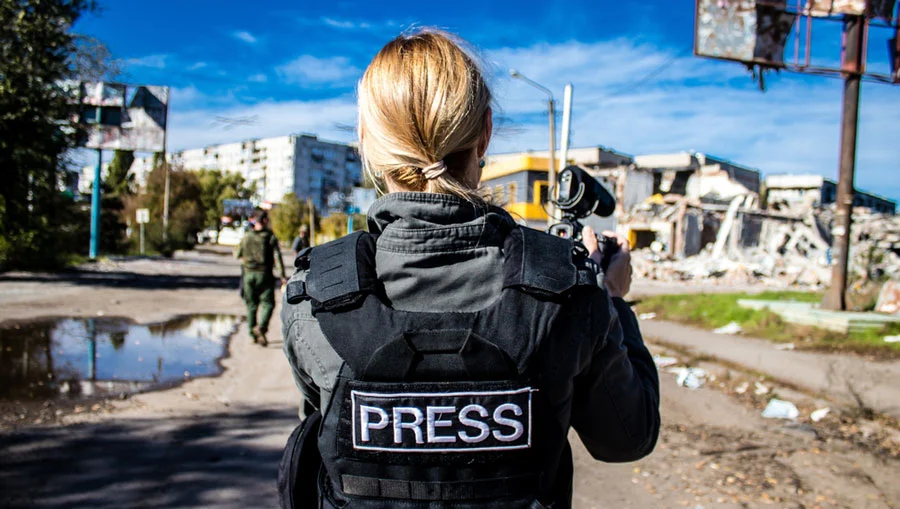The Challenges Presented by PTSD in a Work Environment
Do you suspect that one of your colleagues is silently struggling with PTSD in the workplace, with their productivity and well-being possibly suffering? Supporting employees with post-traumatic stress disorder is possible if you know about their difficulties. But like many mental health conditions, the signs are not always readily apparent to co-workers.
Catalina Behavioral Health specializes in treating posttraumatic stress disorder along with a host of mental health problems. We know that having a co-worker with PTSD requires delicacy, tact, and compassion.
This mental health condition is serious. So how can you tell if your colleague has PTSD? Keep reading to learn more about post-traumatic stress disorder and its impact on the professional environment.
Confidential Trauma and PTSD Assessment
A Quick Overview of Post-Traumatic Stress Disorder (PTSD)
Posttraumatic stress disorder comes as an emotional or stress response after experiencing or being a witness to a disturbing trauma.
The memories of the trauma can replay in the brain of someone experiencing PTSD over and again until they get professional help. These intrusive memories and negative thoughts can replace a person’s propensity for typical, positive thinking and thought processes.
Everyone responds to trauma differently, and there’s not a clear “right” or “wrong” trauma response type.
Does PTSD Develop Immediately After a Trauma?
PTSD does not necessarily develop immediately. The symptoms can take a few weeks to appear. For others, it can take several months or even years for the signs of PTSD to appear.
How Common Is Post Traumatic Stress Disorder?
The results of the Wave 3 National Epidemiologic Survey found PTSD present in approximately 6% of the general population.
It also indicated a heightened risk of workplace PTSD among ware veterans.
Common Symptoms of PTSD in the Workplace (Behavioral and Physical Health Complaints)

Not all symptoms of developing PTSD are observable. Here are some of the behavioral and physical symptoms that you might notice in your co-workers:
- Hypervigilance: Your co-worker may seem “edgier,” or overly alert to their surroundings.
- Intrusive thoughts: Colleagues who live with PTSD may seem to lose interest in their work or have difficulty concentrating due to intrusive thoughts or flashbacks.
- Irritable or angry behavior: Your colleague may have emotional outbursts or unexplained anger without any apparent reason. This sign may also indicate mood disorders.
- Avoiding certain things: Some who have PTSD will avoid things that trigger memories of the traumatic event. That might mean they avoid certain people, places, or even activities that are triggers of their symptoms.
- Decreased productivity: An employee with PTSD may get less work done than in the past or have trouble meeting deadlines.
- Concentration issues: The employee’s work performance may suffer. Memory problems and lack of concentration can happen if their PTSD causes poor sleep or insomnia. It can also result if nightmares awaken them at night.
- Absenteeism: The constant stress that comes with surviving trauma can lead to several physical complaints. Your co-worker may miss work because of headaches, stomach issues, high blood pressure, and other illnesses can co-occur with the mental health symptoms of workplace PTSD.
It’s worth mentioning that these behavioral and physical signs are not only PTSD symptoms. Rather, they can also point to other mental health problems. Encourage empathetic, open communication to encourage the person to get help.
A Single Traumatic Event (or Several Traumas) Can Cause PTSD

The American Psychiatric Association explains how posttraumatic stress disorder can happen after exposure to a single trauma event or an accumulation of several traumatic events.
There is not a one-size-fits-all reason that people develop PTSD after a traumatic experience; nor is there a single solution to help someone heal after a traumatic event. Each person struggling with this mental health condition must receive a holistic, highly individualized approach to care.
Get Effective Trauma Treatment Options
What Is a Possible Traumatic Workplace Event?
Of course, not all traumatic events occur in the workplace, especially for essential workers. In many cases, workplace PTSD can come directly from certain risk factors inherent to the job.
Workplace Traumas Leading to PTSD Cases
Here are some hypothetical scenarios that explain why some professions have greater risk factors for PTSD and other mental health conditions:
Police Officers and First Responders
‘Jake,’ a police officer, was among the first responders to a domestic violence call. He expected to do the usual – take a report from each partner, one blaming another, and with neither actually pressing charges. He took these calls at least once per shift.
He was not prepared for what he witnessed when he got inside the home. This was not domestic violence but a brutal sexual assault and gory murder scene involving multiple, severe knife injuries to the victim. Jake cuffed and arrested the alleged assailant and took him to jail for processing. He finished his shift without discussing the incident; he was not comfortable telling much about the incident with the other officers.
Several weeks later, Jake began having PTSD symptoms and experienced a PTSD episode. He was having trouble concentrating and started to lack of focus on his job. Although he was a valuable member of the local police department, he knew the working environment was unsafe for him. Plus, he was putting other officers in physical danger by not having his head in the game.
Jake quit the police force, accepting a job as a personal security specialist for a local celebrity instead. He never discussed the incident with anyone and didn’t seek counseling services.
Journalists Covering War Zones and Natural Disasters

‘Mia’ was a rising star in her network, beloved by her co-workers for her fearlessness when interviewing people who live in war zones or survivors of disasters. She had a knack for capturing how a person experiences living in such dangerous places.
One day, Mia received a serious injury while interviewing a family who had survived. A nearby tree fell down on the family and Mia, killing a young child right in front of her and crushing Mia’s leg. After an excruciating surgery to save her leg, Mia became easily startled every time she heard a loud noise that reminded her of the tree cracking and falling. These noise triggers were unpredictable and impossible to prepare for.
A close friend at work noticed her exaggerated startle response and encouraged Mia to use their company benefits to help the oncoming mental health issues. A psychologist explained work-related PTSD and helped her learn good coping skills to manage the distressing memories.
Mia is back to work after asking for reasonable accommodations. Thanks to the supportive work environment, she is now reporting breaking news from inside the studio instead of working on the front lines.
Military Personnel Around the World
‘JR’ had dreamed of joining the Army since childhood. When he turned 18, he enlisted and left for boot camp right after graduating high school. After 21 years of service, he’d worked his way up the ranks and enjoyed the ongoing support of his brothers and sisters in arms. The pride of serving was almost impossible to explain to JR; he knew that not everyone was cut out for military life.
One day while JR and a buddy patrolled a sector on a security mission in a distant land, they heard a strange clicking noise. JR’s buddy had stepped on an IED. Before they realized what had happened, the younger soldier was killed by the blast.
JR began to doubt his job performance and internalized self-blame – he was in charge of this security mission and one of his support employees had died on his watch. JR slid into a deep depression and even entertained suicidal thoughts. His commanding officer saw the decline in JR’s psychological safety and ordered him to take a leave and get PTSD treatment.
The mental health specialist diagnosed him with anxiety disorders and PTSD. Eligible for full retirement, JR left the military. He learned some new coping strategies to help ease the painful memories of the event. He’s also now happy to be a volunteer – each day he puts his leadership to work. Today, JR helps provide ongoing support to military members re-entering civilian life after military service.
Support Systems Without Discrimination for Workplace PTSD

When a co-worker is experiencing PTSD, it’s vital to provide them with a support system that is fair and inclusive. Remember that not everyone has a strong social support network – the workplace may be a lifeline.
And if your coworker is aware that they have survived trauma, our guidance on thoughtful gifts for trauma survivors can help you find just the right item for an otherwise difficult-to-navigate office holiday party.
Inclusive Policies and Accommodations
Employers can minimize the impact of workplace PTSD by having policies that bar discrimination, sexual harassment, or other bullying. Nobody should suffer because of their race, age, disabilities, gender, or other characteristics.
Employers should also provide equal access to all support services for employees after a traumatic event that could lead to workplace PTSD.
Set Confidentiality and Privacy Standards
Someone struggling to process a traumatic event may hesitate to admit to their troubles. They may not have fully processed the trauma yet or don’t understand how experiencing PTSD impacts the workplace.
Most of all, they may fear the mental health stigma if they come forward to ask for resources or help.
Maintain strict confidentiality standards and make it clear that the company will not retaliate if an employee reports a workplace PTSD-causing incident.
Outreach About Workplace PTSD
Help others understand PTSD by actively engaging within your work environment. Collaborate with community leaders who can offer training and seminars to help employees have a better idea of what trauma looks like and how workplace PTSD can impact the entire company.
When employees facing PTSD are given support and effective options for treatment, they will find renewed hope.
Up To 100% of Rehab Costs Covered By Insurance
Catalina Mental Health Professionals Can Help Heal Workplace PTSD
You don’t need to struggle any longer. It’s time to put to rest the nightmares, flashbacks, and anxious feelings that go hand in hand with workplace PTSD. With the professional care you can receive at Catalina Behavioral Health, you will learn how to manage your trauma and process the aftermath of the traumatic event in a safe environment.
We are in-network with most major group health insurance plans and strive to meet all your mental healthcare needs. Call us today to get the help you need.





